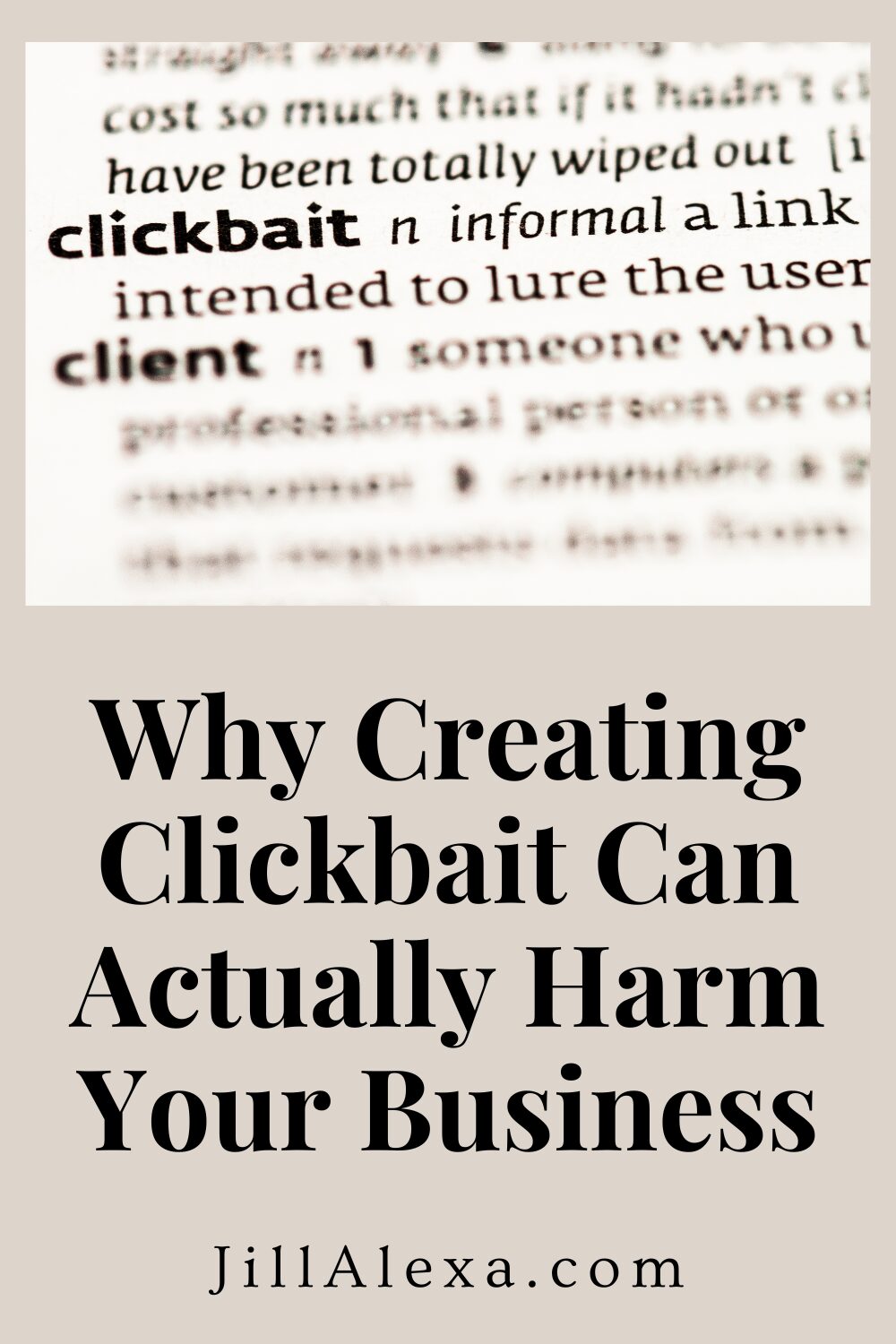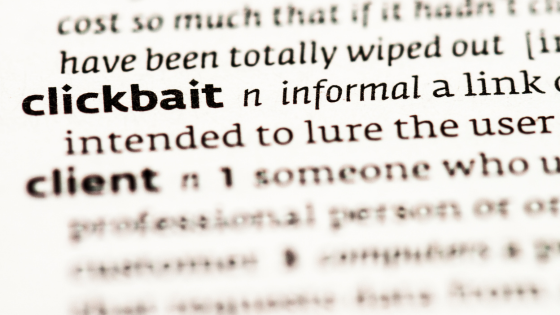One of the first rules in business is, “don’t make promises you can’t keep” also known as “don’t overpromise and underdeliver”. That’s why creating clickbait is a strategy we suggest you avoid. Simply put, it makes your business come across as dishonest, which means you, as the business owner, are seen as dishonest too.
So why do business owners resort to using clickbait?
In this competitive world of online marketing, the quest for attention and engagement is relentless. You’re competing with literally everyone and every business. Even those who don’t own a business but just simply create content, well, you’re technically competing against them, too.
One major way that businesses and content creators turn to get noticed is through clickbait, with its sensationalized headlines and enticing promises, which may seem like a tempting strategy to drive traffic. However, beneath the surface, the deceptive allure of clickbait can have detrimental effects on your business’s reputation and long-term success.
What is Clickbait?
Clickbait is creating misleading headlines to entice people to click on something and usually leaves people sorry they did.
For example, you might see a headline that promises a quick fix, like “This secret herb will make you drop 10 kgs in a week“. The headline is designed to make you want to know more but when you click the link, you don’t get the answer you were promised.
One thing every owner needs to keep in mind when it comes to creating a successful business would be the fact that clickbait just doesn’t work. It honestly isn’t going to work out in the slightest for you if you go this route. So, with that said, here’s why it can actually hurt your business.
3 Ways Clickbait Can Harm Your Business
1. Clickbait Erodes Trust
You need to keep in mind that trust is the cornerstone of any successful business-client relationship. So, clickbait and other scams, by nature, employ tactics designed to deceive and manipulate. When people click on a headline only to find that the content does not deliver what was promised, trust is eroded. They get mad, and this loss of trust can lead to negative perceptions of your brand, making it challenging to build and maintain a loyal customer base. Plenty of websites and creators are known for this, and they’re hated for doing it.
 2. Increases Bounce Rates
2. Increases Bounce Rates
So, something else you need to keep in mind is that clickbait often results in high bounce rates, meaning that users click on a page and quickly leave because the content fails to meet their expectations. Essentially, high bounce rates signal to search engines that your content may not be relevant or valuable, adversely affecting your website’s search rankings.
On top of that, no SEO tool can help you out with bounce rates. If you’re making bad content, then it’s the content itself that needs fixing. But after you fix this giant mess, you could get SEO tools, like SEO markup tools, where you can test it here.
But again, you need to keep in mind that no SEO tool in the world can help if you’re creating bad content- not at all.
Overall, high bounce rates are really bad for your website, and this, in turn, can decrease the visibility of your business in search engine results, making it harder for potential customers to find you.
3. You’ll Be Violating Advertising Standards
Keep in mind that deceptive advertising practices, including clickbait, can violate ethical standards and, in some cases legal regulations.
That’s right, there might even be a chance that you could get into legal trouble for this. Regulatory bodies and advertising platforms have guidelines in place to protect consumers from misleading practices.
Plus, violating these standards not only puts your business at risk of penalties but can also result in a tarnished reputation.
At the end of the day, maybe it’ll be less costly to just tell the truth, right?

